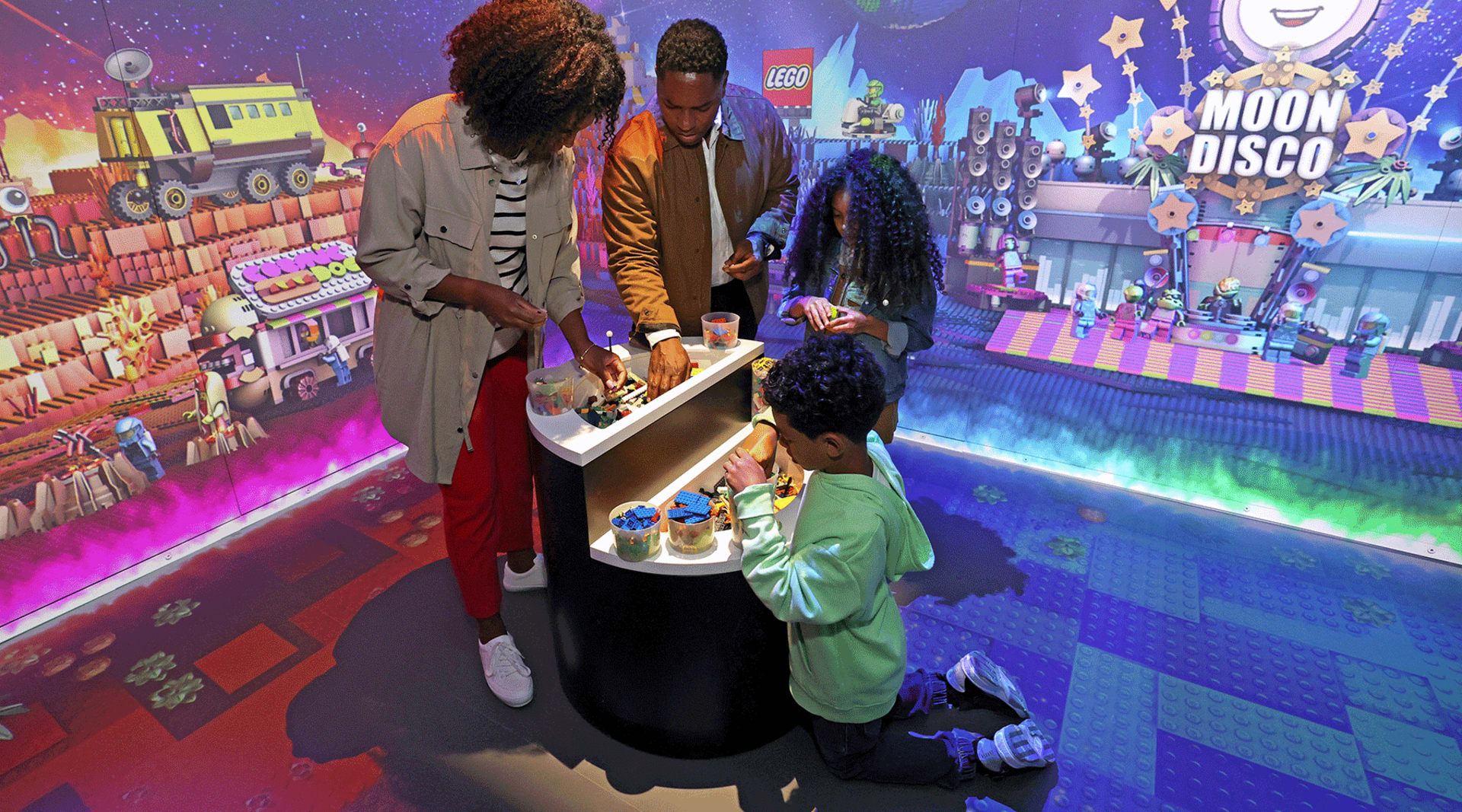According to Wunderman Thompson’s “The Future Shopper Report 2021”, which was released in July and surveyed 28,000 consumers across 17 different markets, 64% of global consumers prefer to shop with brands that offer both online and in-store services, and less than half of all shoppers worry about shopping in-store as pandemic restrictions are lifted. Research firm Forrester reported that while ecommerce in the U. S. grew 30% in 2020, a projected 72% of retail will still take place offline in 2024.
Shopping online is convenient, and now a normal part of retail. But what can a physical store offer that ecommerce can't?
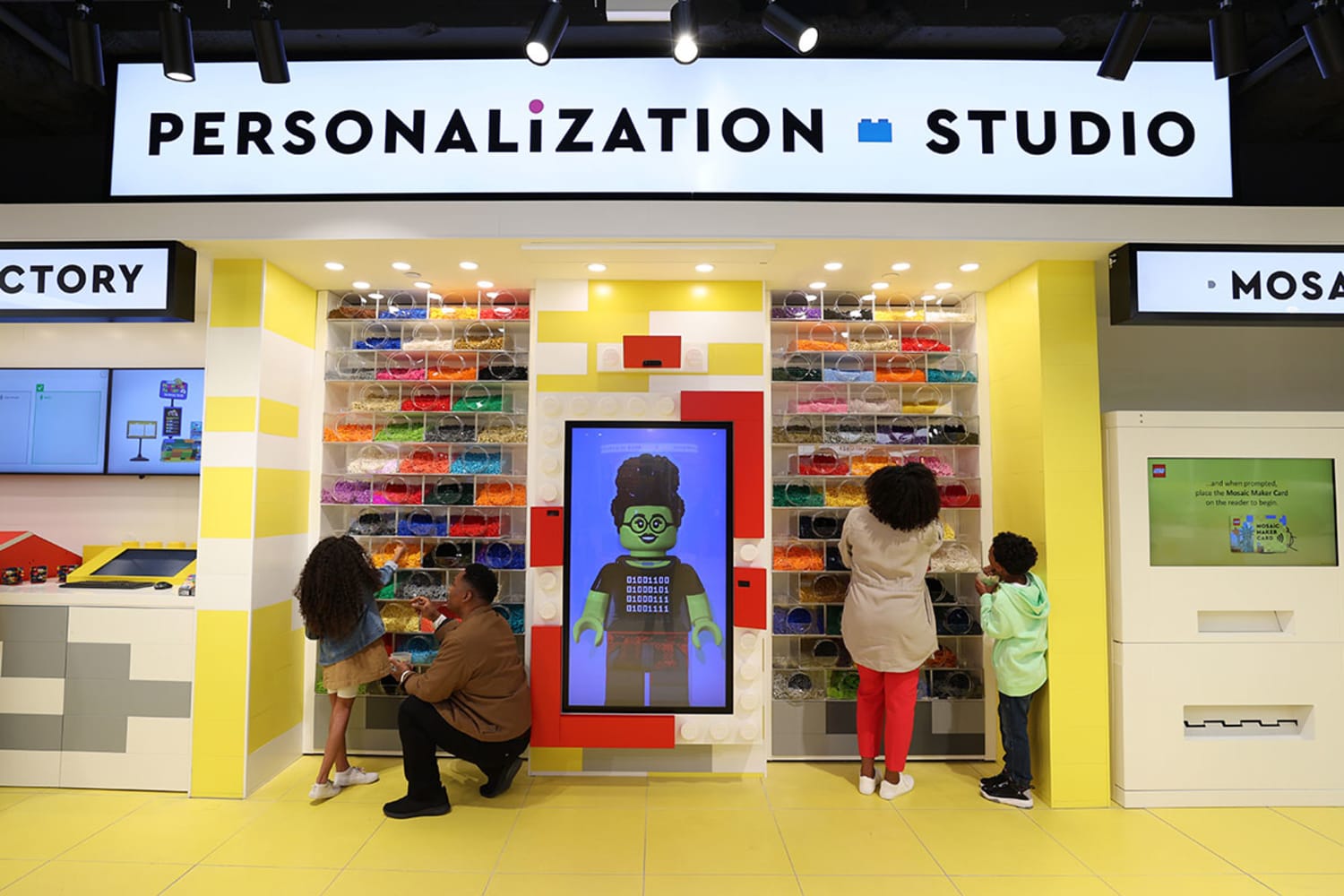


Brands are actively expanding their in-store offerings and flagships, betting on in-person retail’s survival post-pandemic. Lego opened a new storefront in New York City in June 2021, where customers can shop in an immersive digital and physical shopping experience. According to LEGO, the goal of the new storefront design is to inspire innovation and creativity, and will play a large part in the brand’s strategy to innovate across retail channels. The new 5th Avenue flagship offers multiple LEGO experiences including the Brick Lab, a virtual and interactive building experience, a Storytelling Table for those interested in learning about LEGO’s development processes, and a Personalization Studio where guests can create mementos from their visit.

The new wave of storefronts will cater to “shoppers [who] seek more personalized and interactive retail offerings,” LEGO stated in their press release. The brand believes that “brick-and-mortar stores continue to play a critical role in strengthening consumers’ connections with a brand and in helping people to discover new products,” and plans to open 120 new stores across 50 countries in 2021.
Tech brands are taking up new real estate as well. Sandbox VR offers customers an in-person gaming venue at 11 stores in the US, Canada and Asia. Since reopening in spring 2021, the stores have seen ticket sales and foot traffic rise above pre-pandemic levels, founder Steve Zhao told CNET. Zhao says his goal is to provide immersive, social, full-body experiences,” where visitors can “build meaningful relationships with friends.”
Even TikTok is dabbling in storefront spaces. The app plans to open a popup shop in the Westfield London shopping center from July 22 to August 8, 2021, where fans can meet popular influencers and attend sessions about creating content and app safety for kids, and receive free TikTok merch. Selling services, experiences, and engagement, the popup will not sell traditional “products” like a typical shop would. Westfield’s marketing director Harita Shah told the Guardian that “having a physical space at Westfield London gives TikTok the chance to immerse shoppers and new creators in full 360 experience where the best of the online platform merges with a real-life experience.”

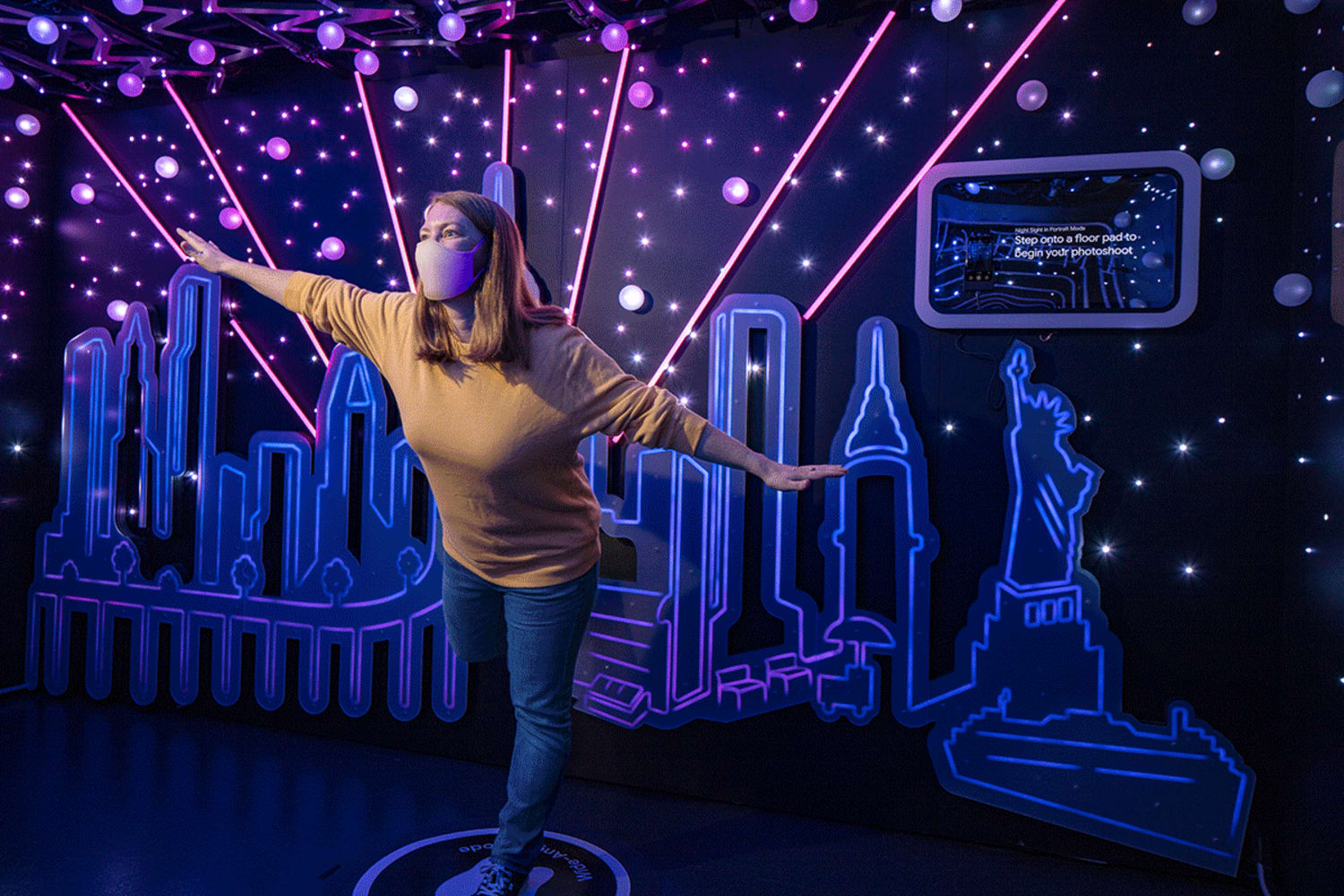
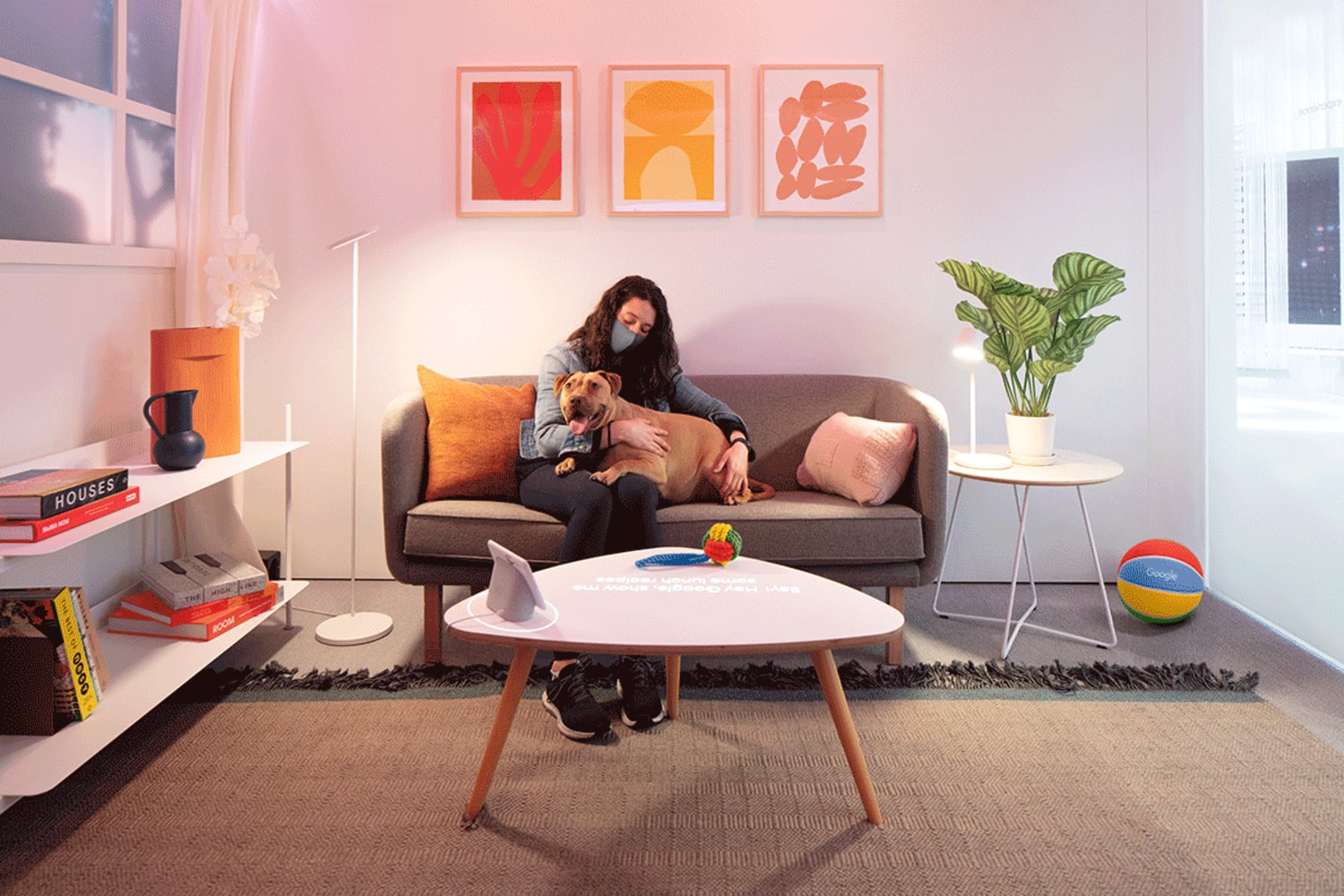
Google opened its first-ever physical store in June 2021 on the ground floor of their New York City headquarters. The decision to open a storefront was to provide an “immersive way people could learn about all the features of our Pixel phones and Nest products, and see how the best of Google’s software and services come to life when using them,” explained Ivy Ross, VP of hardware design, UX & research at Google and Nathan Allen, head of store design & special projects.



An enclosed “imagination space” allows shoppers to experience Google products privately, or learn about Google products through interactive LED discovery boxes that line the interior windows. Adding to the Google experience offering, a “workshop space” is reserved for sub-brand events such as photography lessons with Pixel, cooking demos with Nest, YouTube concerts and more.

The store’s design is founded on the principles of neuroaesthetics to create an experience that aims to “re-awaken visitors to the childlike wonder found in the technology and digital innovation on display.” The cork furniture, neon lighting, and minimalistic décor are meant to comfort and relax visitors while they shop—and earned Google a LEED Platinum certification for the store’s sustainable credentials.
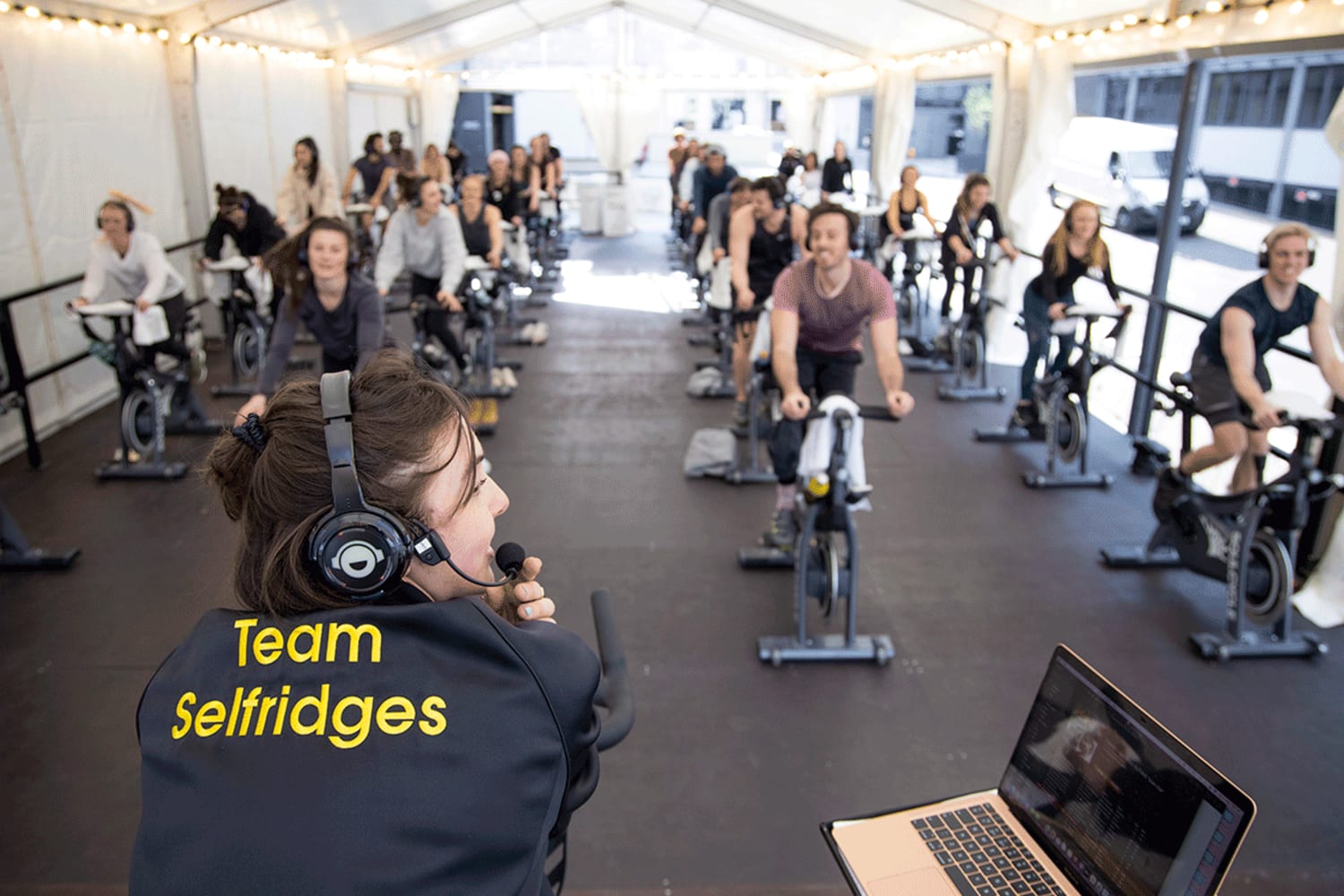


UK retailer Selfridges is embracing in-person retail events and popups. A leader in experiential retail, Selfridge flagships boast luxury florists, SoulCycle classes, cinemas, and eateries. In May, the store was even granted a license to host weddings. Customers are flocking back as pandemic restrictions in London lift: their Brasserie of Light restaurant was fully booked for two weeks once it reopened this spring.
In beauty, brick-and-mortar storefronts are still essential to business models. Underscoring this, Glossier has raised $80 million as of July 2021, which the company reports will go towards store expansions in the near future in cities including Seattle, London, and Los Angeles.
Brands are offering more than in-person shopping; they’re engaging with customers and forging interactive relationships at their flagships. IRL retail is betting that consumers will embrace the ability to connect with brands through exposure to products and familiarity through brand experiences.
Please provide your contact information to continue.
Contenuto correlato

Live commerce accelerates

